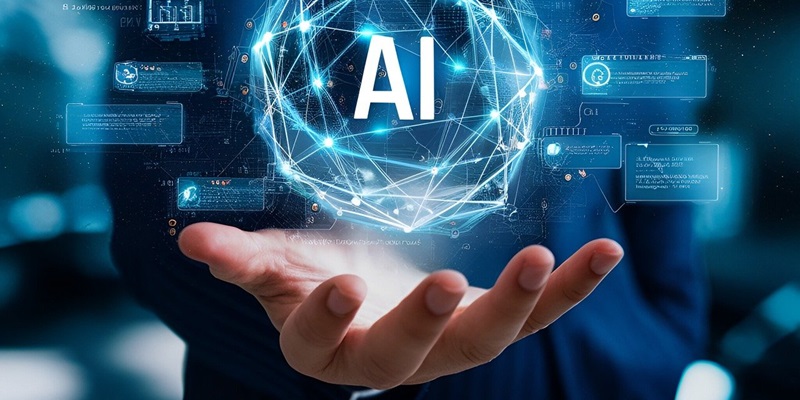Artificial Intelligence (AI) is no longer a concept confined to the realm of science fiction. Today, it has become a cornerstone of various industries, revolutionizing the way businesses operate and interact with their customers. AI’s broad capabilities, from predictive analytics to natural language processing, are being leveraged to improve efficiency, enhance user experience, and unlock unprecedented opportunities. In this article, we will explore how AI is transforming key industries, driving innovation and change at a rapid pace.
Financial Services
AI is making significant strides in the financial sector, streamlining operations and enhancing decision-making processes. Financial institutions utilize AI algorithms for fraud detection by analyzing transaction patterns and identifying anomalies in real-time. This proactive approach not only mitigates risks but also safeguards customers’ assets. Additionally, AI-driven chatbots and virtual assistants provide 24/7 customer support, addressing queries and offering personalized financial advice, thus enhancing customer satisfaction.
Furthermore, AI is revolutionizing investment strategies through algorithmic trading. By analyzing vast datasets and market trends, AI algorithms execute trades at optimal times, maximizing profits and reducing human error. These advancements underscore AI’s potential to redefine the financial landscape, fostering a more secure and efficient environment for both institutions and customers.
Healthcare
The healthcare industry is experiencing a paradigm shift with the integration of AI. One of the most notable applications is in medical diagnostics, where AI-powered systems analyze medical images and patient data to identify diseases at an early stage. For instance, AI algorithms can detect irregularities in mammograms or retinal scans with remarkable accuracy, aiding in early diagnosis and treatment of conditions like cancer and diabetic retinopathy.
AI is also transforming drug discovery, a traditionally time-consuming and expensive process. By predicting how different compounds will interact with biological systems, AI accelerates the identification of potential drug candidates. This not only shortens the development timeline but also reduces costs, making treatments more accessible.
In addition, AI-powered telehealth solutions enable remote patient monitoring and virtual consultations. By analyzing patient data in real-time, these systems provide timely interventions and personalized care plans, improving patient outcomes and alleviating the burden on healthcare facilities.
Transportation and Logistics
AI’s impact on the transportation and logistics sector is profound, driving efficiencies and optimizing operations. In logistics, AI algorithms analyze vast amounts of data to predict demand, optimize routes, and manage inventory levels. This predictive capability ensures timely deliveries and reduces operational costs, enhancing the overall efficiency of supply chains.
In the realm of autonomous vehicles, AI systems are at the forefront of innovation. Self-driving cars utilize AI to navigate complex environments, interpret traffic signals, and make real-time decisions, aiming to reduce human error and improve road safety. Companies like Tesla and Waymo are pioneering this technology, with ongoing research to make autonomous driving a mainstream reality.
Moreover, AI enhances public transportation systems through real-time data analysis. AI-driven predictive maintenance ensures that public transit vehicles operate smoothly, reducing downtime and improving service reliability. Passengers benefit from AI-powered applications that provide real-time updates on schedules, delays, and alternative routes, making commuting more convenient and efficient.
Education
AI is transforming the educational landscape by personalizing learning experiences and enhancing administrative efficiency. Adaptive learning platforms leverage AI to tailor educational content to individual students’ needs, strengths, and weaknesses. By analyzing students’ performance data, these platforms provide customized learning paths, ensuring that each student receives the appropriate level of challenge and support.
AI also plays a crucial role in automating administrative tasks, such as grading and scheduling, allowing educators to focus more on teaching and student interaction. For instance, AI-powered tools can grade multiple-choice tests and essays with high accuracy, providing immediate feedback to students.
Additionally, AI-driven virtual tutors and chatbots offer students 24/7 assistance, answering queries and providing additional learning resources. This continuous support helps students stay engaged and motivated, ultimately enhancing their academic performance.
Retail
The retail industry is leveraging AI to redefine the shopping experience and optimize operations. Personalized recommendations powered by AI enhance the customer shopping experience by suggesting products based on individual preferences and browsing history. These targeted suggestions increase sales and customer satisfaction, fostering brand loyalty.
AI is also revolutionizing inventory management by predicting demand and optimizing stock levels. Retailers can minimize overstock and stockouts, ensuring that popular items are available when customers need them. Automated checkout systems, powered by AI, expedite the purchasing process, reducing wait times and improving the overall shopping experience.
In addition, AI-driven analytics provide retailers with valuable insights into consumer behavior and market trends. These insights enable retailers to make data-driven decisions, from marketing strategies to product development, ensuring they stay competitive in a rapidly evolving market.
Agriculture
AI is also making significant advances in the agriculture sector, leading to more informed decision-making and optimized operations. AI tools monitor crop health and predict yields by analyzing environmental data, soil conditions, and weather patterns. This helps farmers to make data-driven decisions about planting, irrigation, and harvesting, thus maximizing crop productivity and reducing waste.
In addition, AI-driven machinery and robotics are transforming traditional farming practices. Automated tractors and drones powered by AI can perform tasks such as planting, watering, and applying fertilizers with high precision. This leads to more efficient resource utilization and less environmental impact.
The integration of AI in agriculture also extends to supply chain management. AI algorithms predict market demand and optimize logistics, ensuring that agricultural products are delivered fresh and promptly. This reduces spoilage and enhances the overall efficiency of the food supply chain, benefiting both producers and consumers.
In summary, Artificial Intelligence is profoundly impacting various industries, pushing the boundaries of innovation and operational efficiency. From financial services to healthcare, transportation, education, retail, and agriculture, AI is driving transformative changes that promise to revolutionize the way we live and work. As AI technologies continue to evolve, their influence will only grow, ushering in a new era of technological advancement and societal progress.

